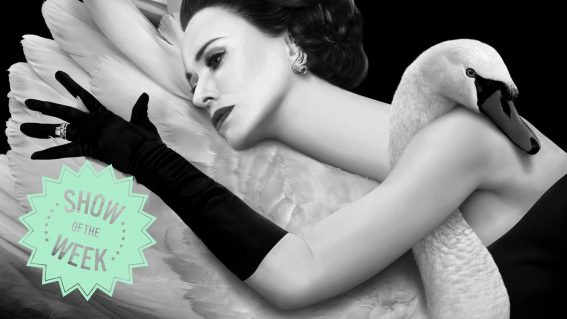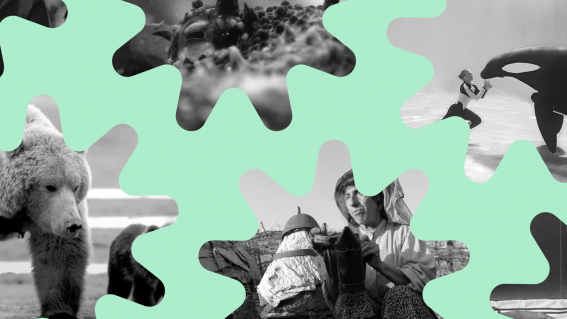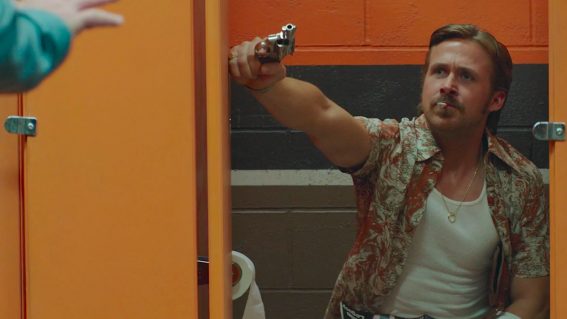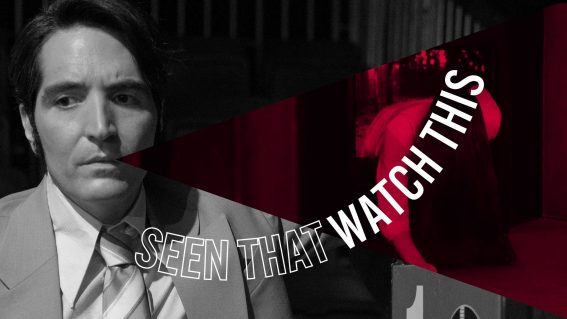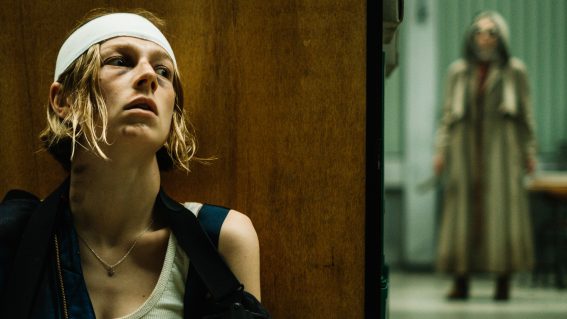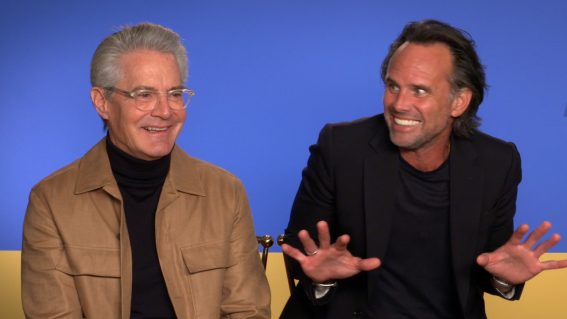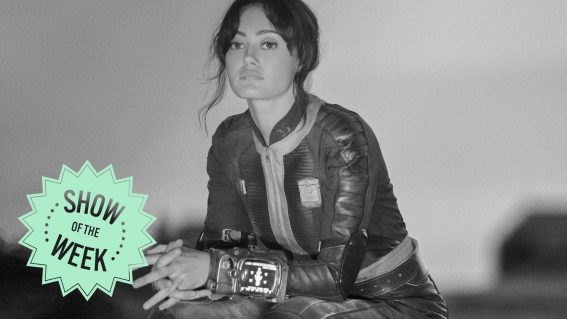Interview: The Wolfpack
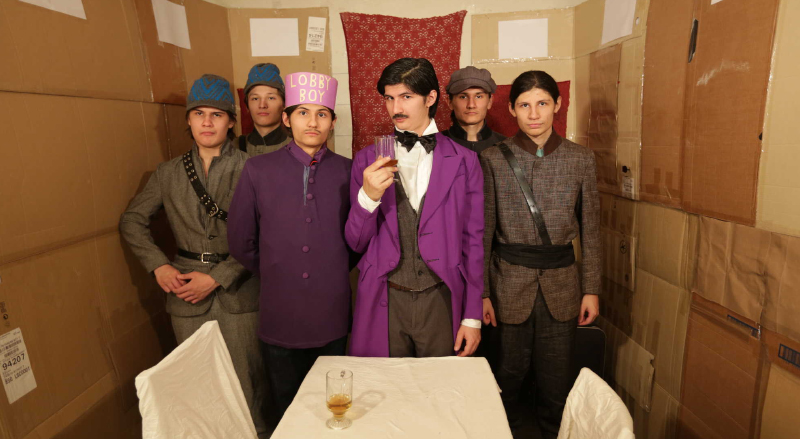
Documentary-maker Crystal Moselle traveled to New Zealand recently with her fascinating film The Wolfpack as part of the NZ International Film Festival. Finding unique subjects in the form of the Angulo siblings, seven children who barely left their family’s Lower East Side apartment for over a decade, The Wolfpack details their unorthodox lives, and the painstaking re-enactment of films they carried out over this time. We spoke with Moselle ahead of The Wolfpack‘s Auckland screenings.
FLICKS: I’m sure this is a familiar question by now, but it has to be asked – how did you meet these kids?
CRYSTAL MOSELLE: I was just walking down the street in New York City and they ran past me. And something about them just really intrigued me. As a filmmaker I find inspiration from characters, usually people that I just see around. And so I went after them. I just instinctively ran. I don’t even know why. I was just like, “Where are you guys from? Who are you guys?”. I was expecting them to say, “Oh we’re from another planet, it’s called this.” That’s how it felt. It was just like a feeling about them that felt very different. The way they spoke and interacted. This openness was just… they just seemed so excited about everything and they asked me what I did for a living, and I told them that I was a filmmaker. And they got so excited and there was, “Oh we’re interested in getting into the business of filmmaking.”
How long did it take to be invited into their home?
I didn’t go into their house for the first four months. We’d just meet outside and eventually they asked me to come over. I knew they were home-schooled. My cousins were home-schooled. I knew that they were different. I wasn’t putting judgement on that. I wasn’t putting judgement on anything. I was just letting it come to me. I think that’s just how I am.
I wasn’t completely fly on the wall, I immersed myself and then just sat. It’s like I got in, then had the camera and it was an intimate thing. I remember one time we were filming, and they were both laying on the bed and I’m just leaning on the bed with my camera and we’re just chatting. It’s very natural and I think that’s how we all opened up to each other and, you know, I didn’t start really doing interviews for the first two years. I think after the first two years that was my first interview with the Dad. I just sat back and let it flow and happen, trying to figure out what it was that I had. And then my first idea was that I’d film them behind the scenes of one of their films or something. A short film that they were going to make, that we’ll help them with. But later on, we realized that the exciting story, most interesting story was about them and their family. Not about them just making something. Because that’s a part of the story. What we realized later is that, that was their escape. The reenactments and all that, that was their way of dealing with the situation that they were in.
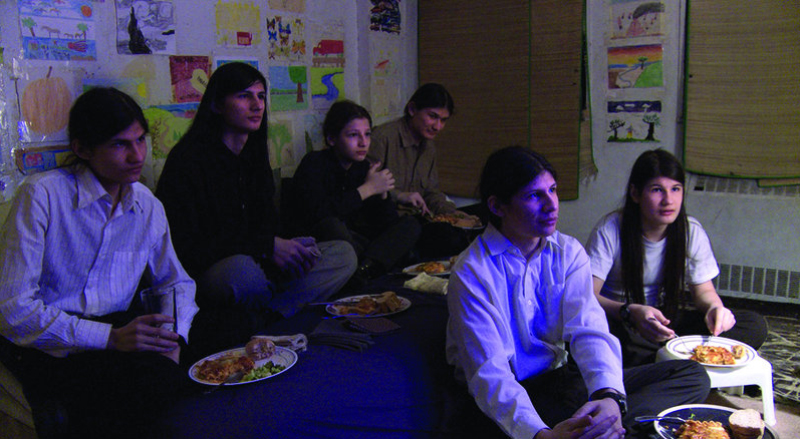
It’s quite a late point in the film, by the time we’re introduced to their father. Up front there is a lot of the reenactment footage and it’s awesome, but it becomes clear that this doesn’t sustain a documentary.
Well also you’re also like, “Why are they doing this? Why are they doing these reenactments? What drove them to sit in front of a TV and do this?” And you realize, they couldn’t leave. They had endless time, so their perception of time is very different than ours. I don’t want to go into the whole science and craziness of that, how we all perceive time. But they would refer to, “In 2011, this happened.” They always knew what year and what month usually. They didn’t have the internet. Mukunda spent two weeks making his Batman costume. Every single day for two weeks he wouldn’t sleep. It’s a different kind of focus.
What was it like to interact with all those props and costumes that they’ve built and actually seeing that in person, the degree of detail?
Gosh, they’re brilliant. They’re beautiful, I’ve never seen anything like it before, just the amount of detail… Their whole thing is that they really wanted it to look like the real thing, because they couldn’t get a Batman costume at the costume store. They had to make it for themselves. That’s like they’re true outsider artists.
I was just thinking, when’s the gallery show? When’s the travelling exhibition?
It’s all happening. That’s the cool thing about it, is that there’s so much stuff to do in the future with them. And that’s what I love about this project, is that it’s just the beginning of something I think that’s going to live on with them. It already is.
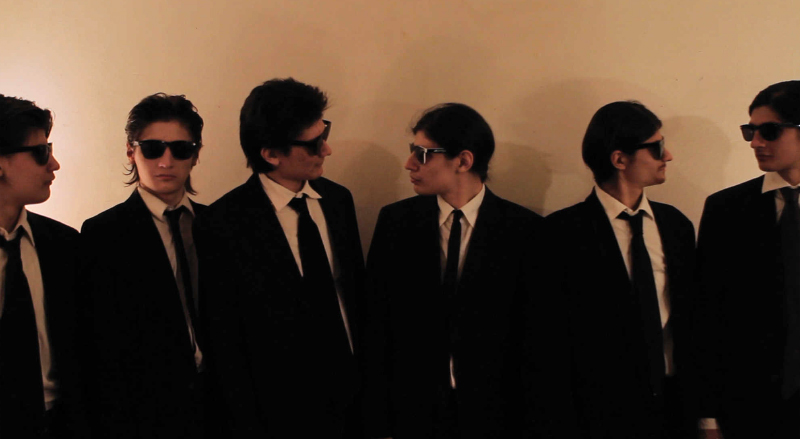
There’s a real temptation to keep saying “them” and “they”. Sorry.
No it’s true, there is a lot of ‘they’ in the beginning and then now it’s like they’re individualising themselves. Bhagavan is more into dance now and he is part of a hip hop theatre group. And Narayana is an activist and he works with this company called NYPIRG and he canvases all of New York. They just won the fracking campaign. Govinda’s an aspiring cinematographer and he’s just shot his first feature film. And Mukunda is an aspiring director and he’s the crazy artist genius. And the two youngest ones are more into music.
There’s a critical moment in the film that recounts Mukunda heading onto the streets wearing a mask. It’s a turning point for some real change in the siblings’ lives, so do you think that was an underlying intention. Or simply “I’m going to put on a mask and go outside so no-one knows it me and I don’t get in trouble?”
That was the catalyst that really brought them out, but I don’t even think he knew that that was happening. I don’t think he was purposely– I think he was really just, “I’m going to go outside, I don’t want anybody to see me, I don’t want my Dad to see me, so I’m going to put this mask on.” But because he never went outside, he didn’t realise that that’s not really going to work.
Absolutely. It’s a completely great strategy on paper and it might be a great strategy in a film as well, but not in actual New York City.
Yeah also that, I think, he felt powerful with that mask on. He’s going outside and people are scared probably and I think that maybe that made him feel more powerful, because in his household he didn’t have power. And I think that’s also why they like reenacting Tarantino films. It gave them power. When you’re acting like those motherfucking gangster motherfucker and you’re becoming that person for like an hour and a half and you’re reenacting the film, it’s like you’re exercising those feelings. And I think he was doing that. I think he was just taking it a step further. He was exercising that outside and seeing and rebelling. He’s full rebelling at age 15, just wanting to push buttons and he did. The end result is that he changed the entire dynamic of his family. His Dad lost his power.
The idea of their Dad having the power and control over the family is pretty straightforward, but is there more to this part of the story than the film lets on?
I think that they reveal what they want to reveal. I personally don’t want to put my judgement into, or my opinion into it because I really just wanted it to be purely from them. But I will say that to me, creating this fear, such a fear of the outside world that your children choose not to leave is severe abuse. You know, they could have walked out that door anytime. Yes, someone kept it locked from the inside and there was a ladder that was up against it. But they were inside this apartment and the biggest factor was all this mind control. We were like, “Why don’t you leave? Why wouldn’t you leave?” And they’re like, “Why would we leave? The outside world sounded like the scariest shit ever.”
And they all believed that it was frightening. And if you ask them now what’s their biggest surprise about the outside world, and they’re like, “How nice people are. And people always want to hug you and smile at you. We grew up in Taxi Driver.”
A little bit of that concern gets directed at you in one moment where you’re asked “When you came in the building nobody bothered you?”
To them, they were scared. Any attention – if the neighbours were like, “Hey what’s up?”, just saying hi – they would take that as, “God what’s going to happen.” Now they’re so popular in their building [laughter]. Everyone’s like, “What’s up Wolfpack? What’s up you movie stars?”
At a time when meta commentary on pop culture is everywhere, what a great time to be The Wolfpack.
It’s almost like it’s starting a trend this year. There’s a couple of articles, I think one in the New York Times, about reenactments and reworking old films and that kind of thing. It’s like they always have a purpose with their clothing. They’re like, what you dress like? No Country for Old Men. That was when we hit a turning point, was when Mukunda came and met me and this scene didn’t make it in the film, but I was trying to teach him how to ride a bike. And his hair was out. They would always have their hair in. When I first met them their hair was out, and then they got all self-conscious and their hair was in. And then that day his hair was out, and I was like, “What’s happening with your hair?” And he said, “I’m like No Country for Old Men. I’m just putting my hair out. I’m like a psychopath today.”
Where and when to see ‘The Wolfpack’ at NZIFF

